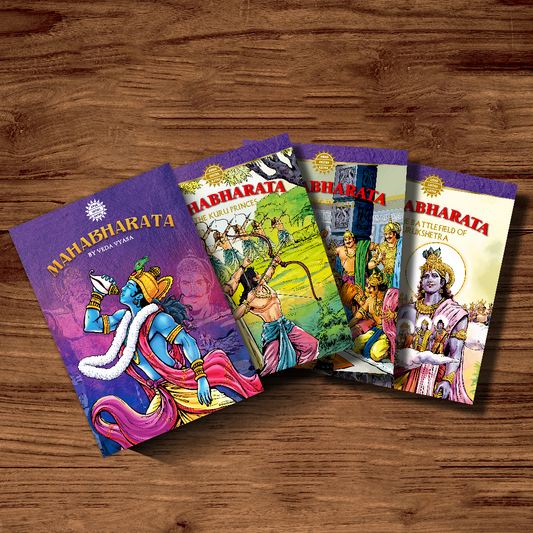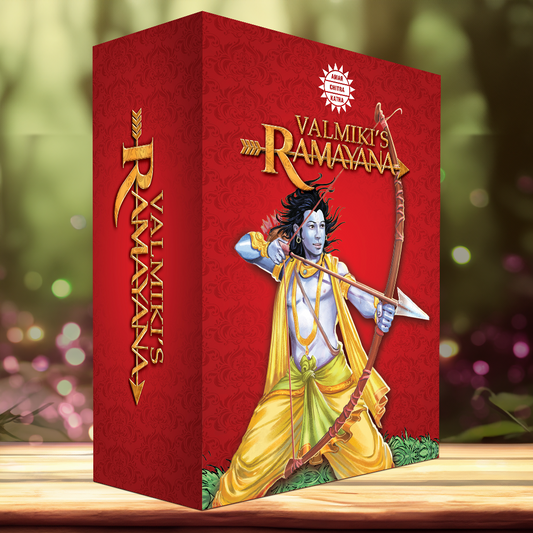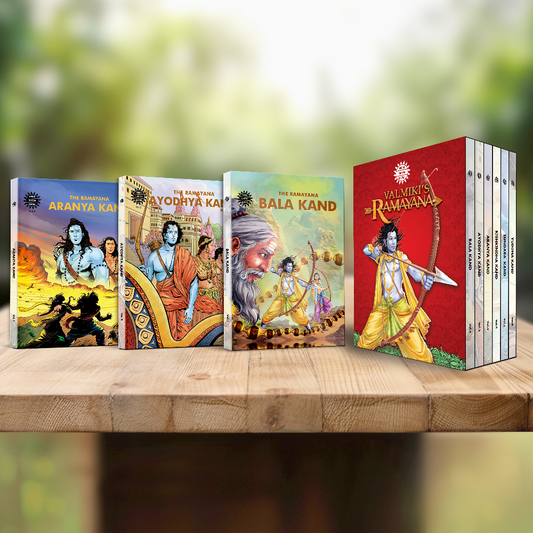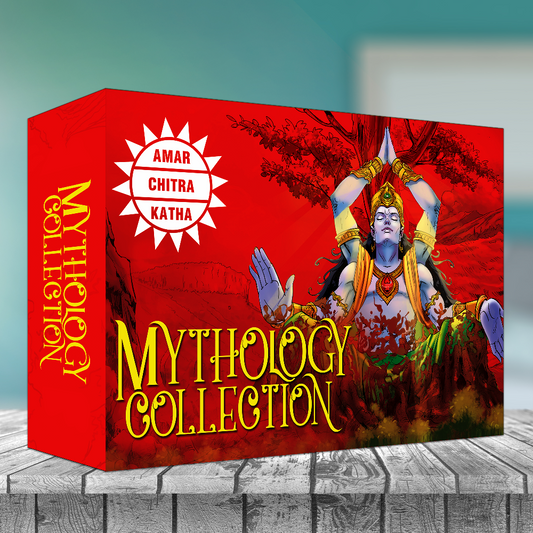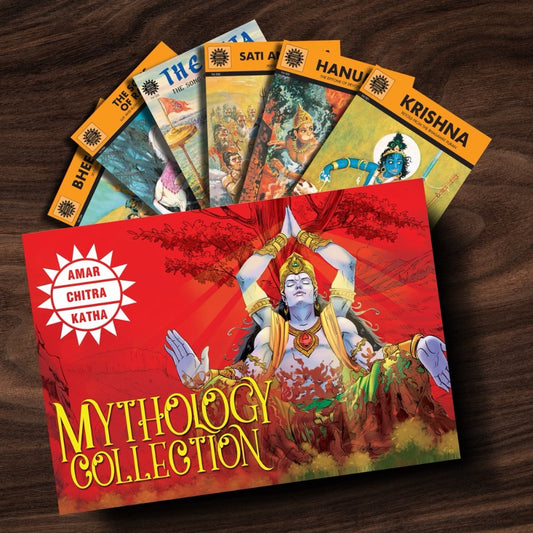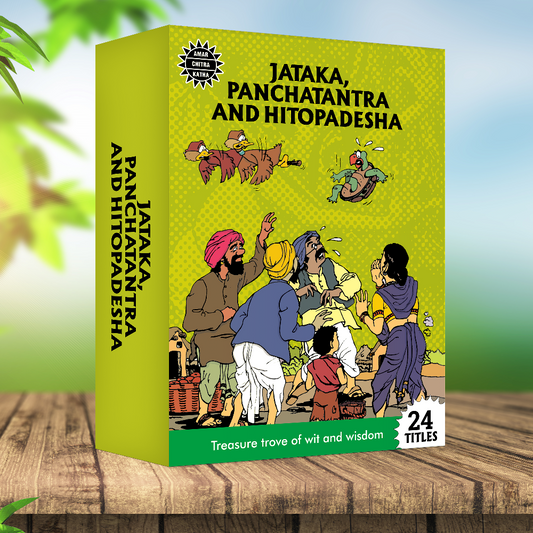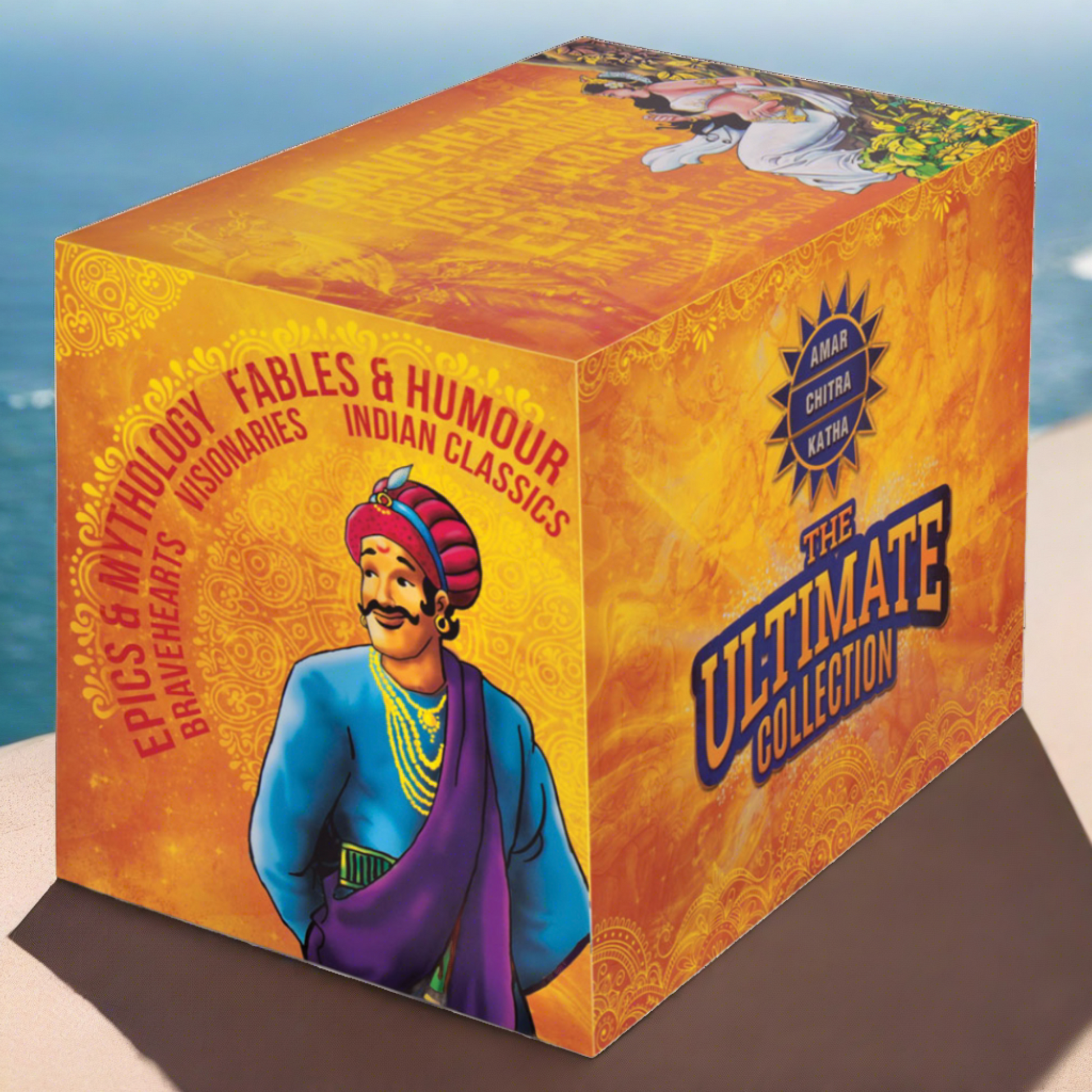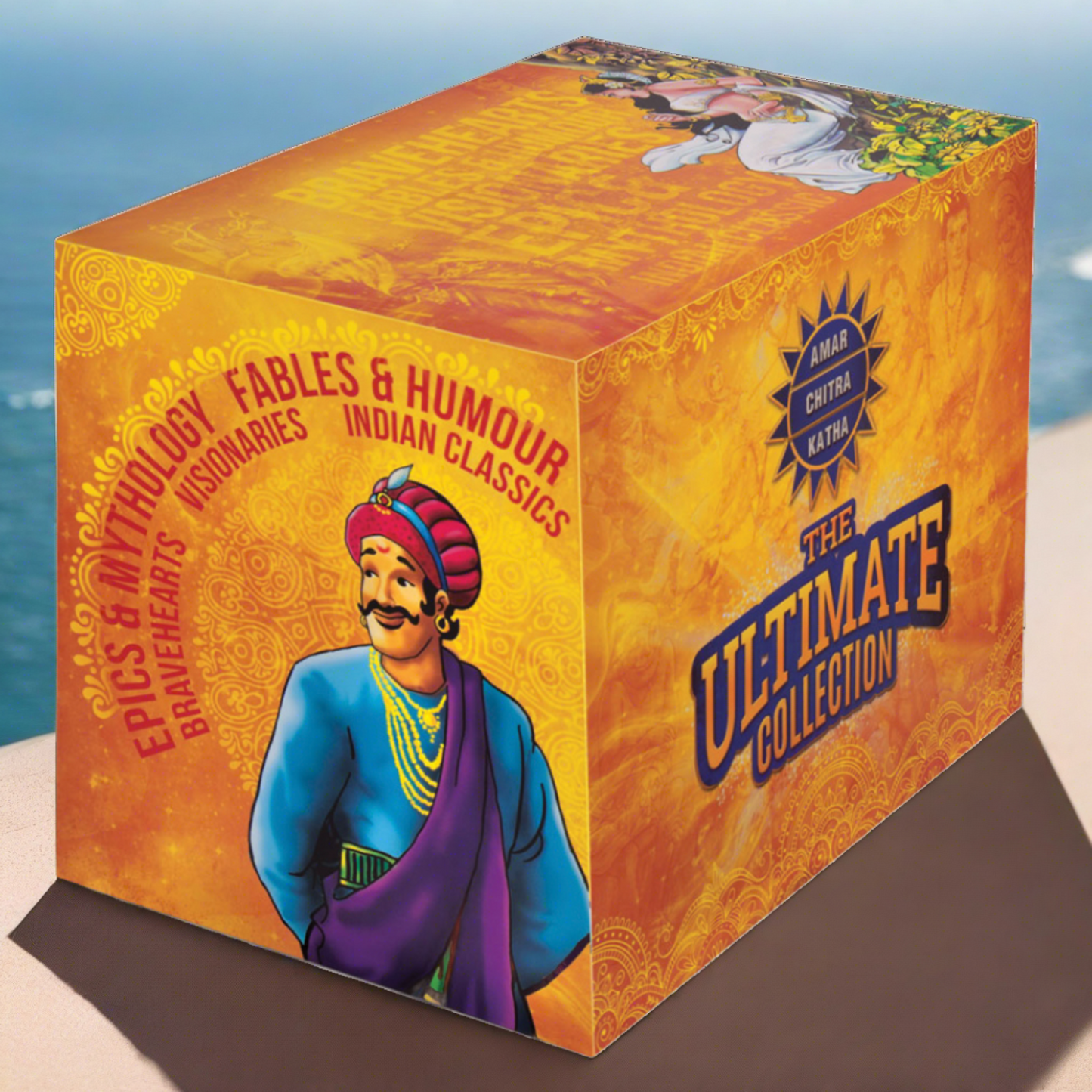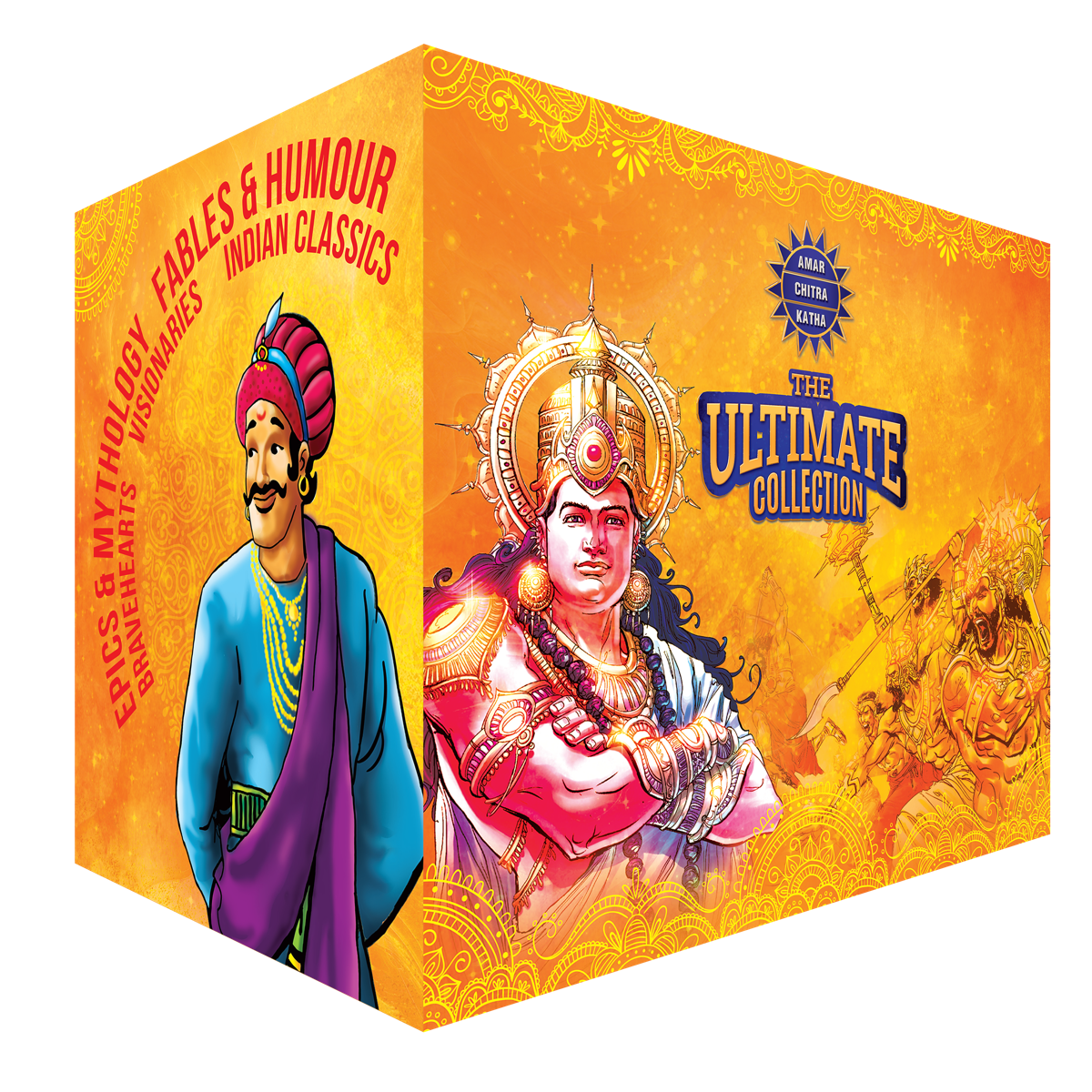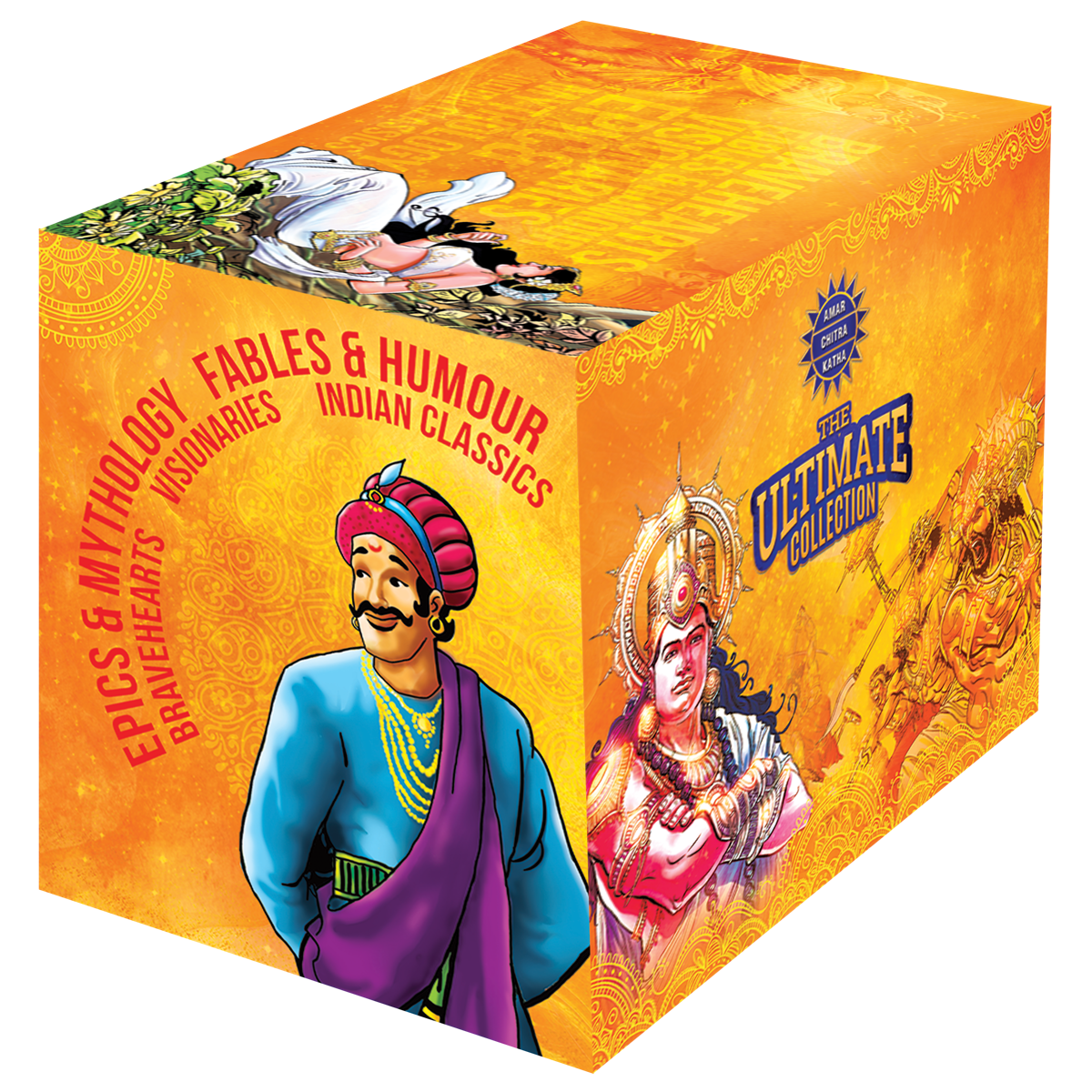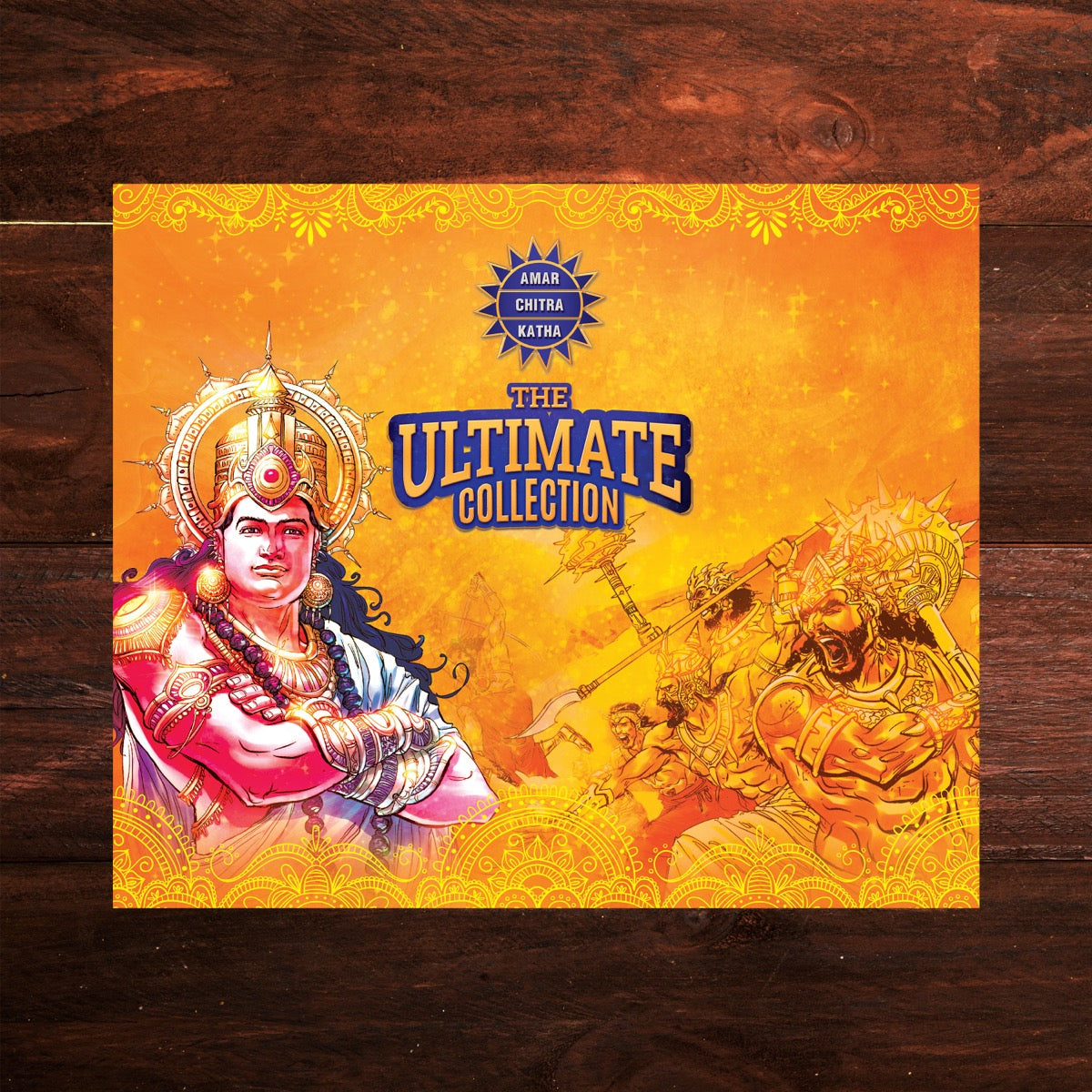Devoted Sons From The Epics
Mythology is full of stories of complicated families. Some of the most interesting tales revolve around father-son relationships that often shape the course of the stories. Sons such as Rama, Bheeshma, and Puru, sacrificed a large part of their life and happiness, for a single reason — their fathers’ happiness. Read more to know more about these devoted sons and their fathers.
Rama and Dasharatha
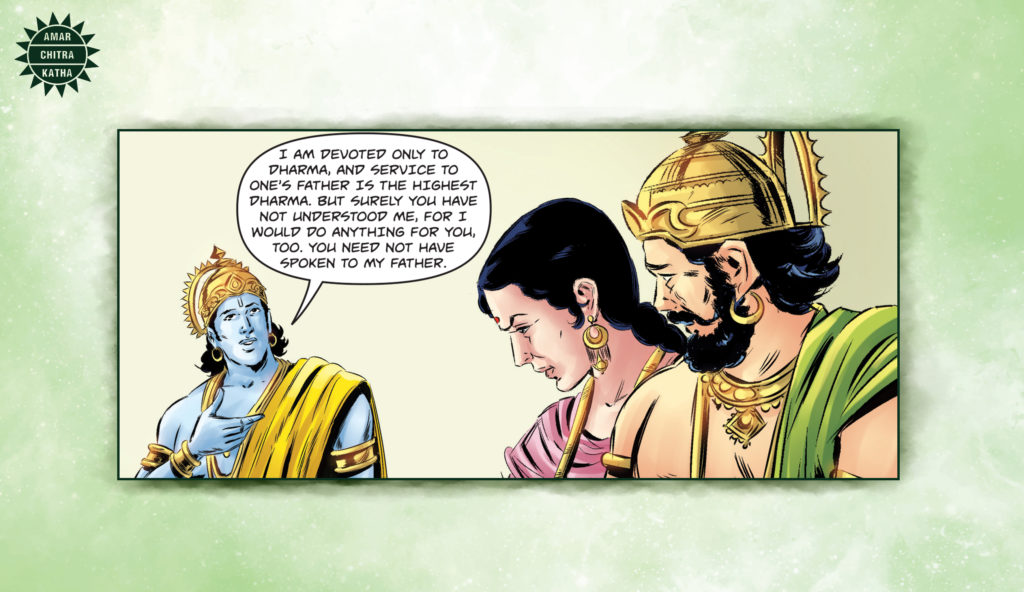
In the Ramayana, Rama was the first son of King Dasharatha of Ayodhya. Considering his eldest’s son’s capabilities and popularity among his people, Dasharatha decided to make Rama the king of Ayodhya. However, fate had other plans. Kaikeyi, one of Dasharatha’s three wives, became insecure about the future of her own son, Bharata. Under the influence of her handmaiden and advisor, Manthara, Kaikeyi took a drastic step. In their youth, Kaikeyi had once saved Dasharatha’s life and in exchange he had granted her two boons. Kaikeyi was reminded of these boons and asked Dasharatha to make Bharata the king instead. She also asked that Rama be exiled for fourteen years. Bound by his promise to his wife, Dasharatha had no choice but to make Bharata the king. However, Dasharatha pleaded with Rama to go against his wishes and not go into exile. Despite appeals from his father, brothers and other courtiers, Rama resolved to leave Ayodhya, all to uphold his father’s word and honour. His sacrifice for his father is why Rama is known foremost as a devoted son, and then as a dutiful king.
Puru and Yayati
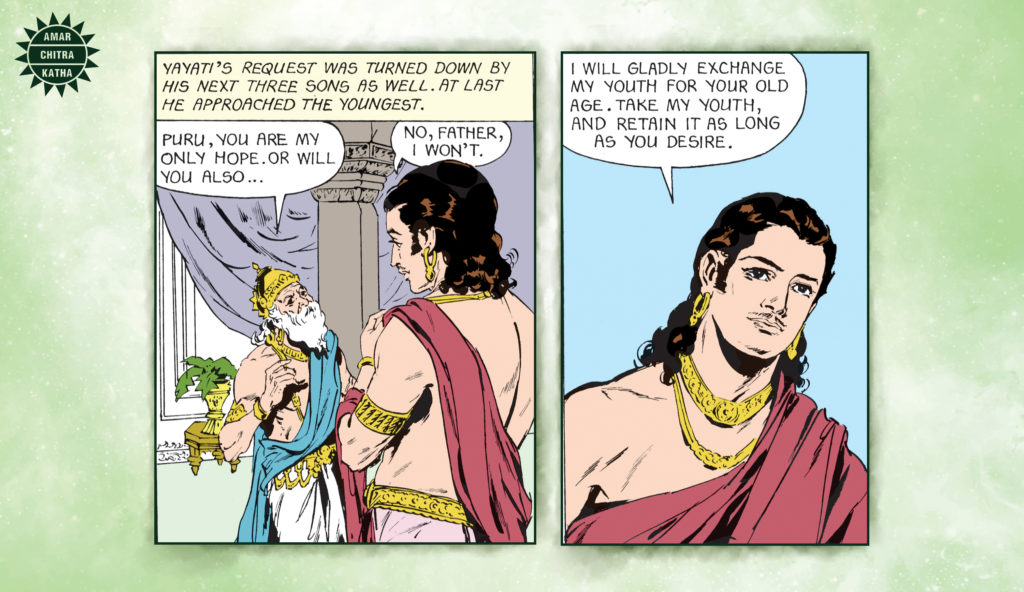
Puru was the youngest son of King Yayati and his second wife, Sharmishtha. Yayati had married Sharmistha in secret, without informing his first wife, Devayani. When Devayani’s father, Sage Shukracharya, came to know about the king’s secret marriage, he cursed Yayati and caused him to lose his youth. The king was deeply distressed and refused to accept his punishment. He begged his sons to take on the effect of the curse, asking for their youth in return for his old age. All of them, except Puru, refused. Despite being a young and able prince with a shining future, Puru sacrificed his own youth for his father and Yayati ruled his kingdom for thousand years, while Puru lived as an old man. His supreme sacrifice proved Puru to be the most dutiful son and Yayati made him his heir. Puru then ruled the kingdom after his father retired to the forest with his wives. Puru went on to become the ancestor to both, the Pandavas and the Kauravas.
Bheeshma and Shantanu
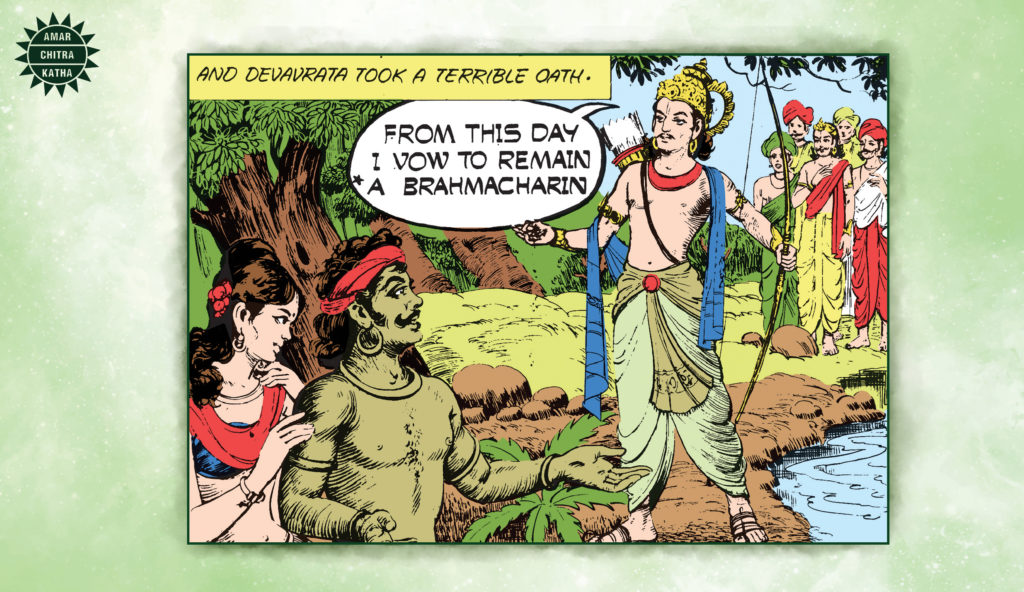
In the Mahabharata, Devavrata was the son of King Shantanu of Hastinapur and Ganga. He was raised alone by his mother, Ganga, after her separation from the king. After Devavrata reached adulthood, Ganga returned her son to King Shantanu, and he was proclaimed as the heir by the king. Soon, Shantanu fell in love with Satyavati, the daughter of a fisherman, and desired to marry her. However, Satyavati’s father put forward a condition for the marriage. He asked the king to proclaim the sons born to his daughter as heirs instead of Devavrata. Shantanu refused to accept this condition and left the place in anger and sadness. In the following days, Devavrata found out about all that had passed. Wanting his father’s happiness above all else, he took a drastic step. Devavrata met with Satyavati’s father and promised him that neither he nor his descendants would ever claim the throne of Hastinapur. To ensure that his promise is never broken, he further swore to never have children and remain unmarried all his life. As soon as he took this vow, the gods blessed Devavrata from above and declared that he should be known as ‘Bheeshma’ meaning ‘the one who took a terrible oath’. Those familiar with the Mahabharata would agree that Bheeshma’s extreme sacrifice for his father changed the course of the epic and had far-reaching consequences down the generations.
The Significance of the Sacrifice
Duty towards one’s parents, especially one’s father, is paramount in our culture. To the modern reader, Rama, Puru, and Bheeshma’s decisions might seem strange. The idea that a son could sacrifice his kingdom, his youth, or his future, without a second thought, only to please his father, is inconceivable. However, devoted sons are a common theme across most stories from our mythology. It is their supreme sacrifices for their fathers that have cemented these men as the most selfless and noble characters in Indian epics, making their stories immortal and memorable.
By Srinidhi Murthy
Read more about these fascinating characters, only on the ACK Comics app!


